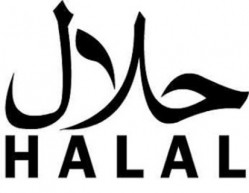Going halal: Can manufacturers appeal to all consumers?

Alberto Di Martino, head of accredited Halal certification body ICB Quality, says the halal meat market is enjoying unprecedented growth..
“We estimate that the halal food market in Europe is worth around €60 billion per year, including both individual consumption and exports. Of this, halal meat accounts for at least €25 billion," he said.
Growth rates varied from country to country with the UK and France enjoying double-digit growth for over a decade, while in Germany the market was still relatively small - but with Europe’s Muslim population expected to grow by around one third over the next 20 years according to the Halal Food Foundation, the sales outlook overall was positive.
Halal, is it meat you're looking for?
But Mintel food analyst Alex Beckett warned that companies wishing to cash in on this needed to tread carefully - or risk alienating non-Muslim consumers.
“While the rapidly growing Muslim population offers obvious opportunities, successful brands will also need to ensure that they do not alienate non-Muslims with halal claims. …Today’s convoluted food supply chain has led to increased concern about damaged or tainted goods.
“Brands that can position halal products as negating these anxieties will therefore not only engage the burgeoning Muslim community, but also the wider population."
According to Martin K Hingley, author of New Cultures of Food: Marketing opportunities from ethnic, religious and cultural diversity, this could mean using a discrete - but official - logo.
“Non-Muslim consumers may find blatant halal certification signage insensitive to their needs or, at worst, offensive,” he wrote.
“By using certified halal signage, a company may be able to segment and target the Muslim market while still enjoying positive reactions from the non-Muslim market. Companies can [also] create products differentiated by labelling that targets specific groups.”
Get official certification
Following revelations in May this year that discount supermarket Aldi was selling halal-labelled black pudding that contained pork, various groups have spoken out against the practice of self-certification and urged manufacturers to seek certification from an authorised body.
Senior panel member of the Sharia Halal Board, Syed Ahmed Hussain Tirmizi said: "Companies knowingly employ such Muslim workers who sign off for the company stating that the product is Halal.
"Most of those signing or approving the meat or poultry have almost zero knowledge about what makes the product Sharia compliant and Halal,” he said.
Meanwhile CEO of the Halal Food Authority (HFA) Saqib Mohammed urged Muslim consumers to look for the HFA logo on all products.
'Not particularly complicated'
For companies interested in securing halal certification, Di Martino said that compliance required a quality management system similar to what most production plants already had in place.
“The rules are meticulous, but not particularly complicated for those working in the food production sector. For example, halal management systems dovetail perfectly with the certified quality standards already used by producers who work with supermarkets,” he said.
The British Halal Food Authority certifies establishments that produce, package, distribute and supply halal food, including finished products, ingredients, additives, flavours, oils and fats as well as foods for export.
It authorises the use of stunning on condition that the animals are alive during the subsequent slaughter process, which must be done manually while the production worker recites a prayer for each animal.








